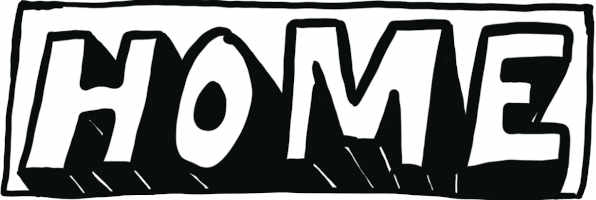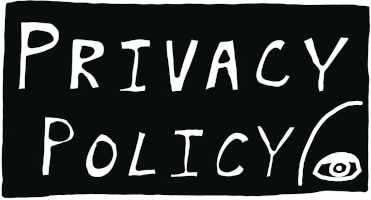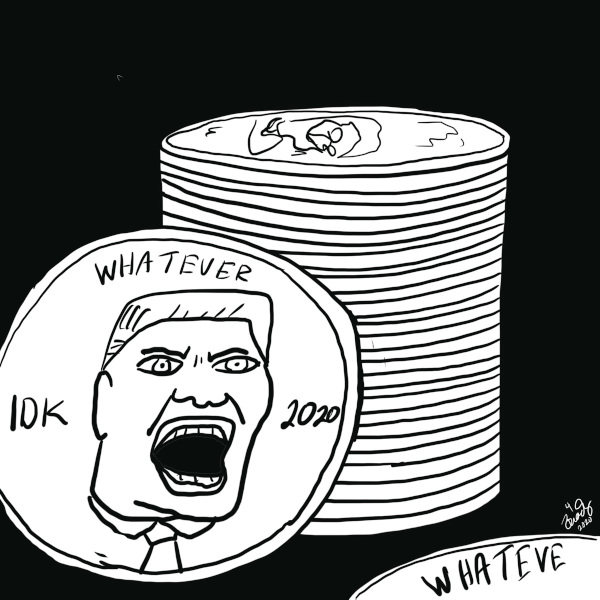Money is not a fiction
A lot of money is getting printed right now. Money printer go brr, as they say. So right now, at this moment, it's important for people to refine what they think about money.
There's this idea that money is a fiction, a collective delusion, that a dollar is not worth anything other than the belief we put in it. This is especially popular among people I tend to generally agree with, more liberal or progressive or left or democratic people. Whatever. We are heterogeneously homogeneous because each of us are special. Anyway, people at the co-op believe money is a myth.
This simply is not true. It's just not. And it isn't even progressive to think that way.
So below I'm going to do my best to explain how I understand what money is conceptually, in a way that might help others better understand what's going on with money and with the crisis right now. You might not agree. I might even be totally wrong, but I think it's fair to say a broad number of pretty smart people basically agree with the the story I'm going to tell here, but I'm going to tell it because I think it will make more sense if I tell it this way than the way they tell it.
THAT might be the fiction. You tell me.
So what follows is a story about what money is and what it means in order to convince you that money is in fact backed by something. It's backed by all the work everyone is going to do in the future. That's what it is. Money is backed by the future's work.
Here's how to think of it.
Future work
Money is a promise.
Imagine two craftsmen, a barrel maker and a whiskey maker.
The barrel maker is putting out fresh new barrels every day. The whiskey maker, though, is different. He just started. His whiskey takes two years before he can get any out the door.
Nevertheless, the whiskey maker has some money and he needs barrels. So he takes his money to the barrel maker and he gives it to him and gets his barrels.
The whiskey maker is creating a debt. Think of that coin as if it were actually a note, a note that said "I promise you whiskey when I have whiskey."
He is saying to the barrel maker: if you give me barrels now, I will owe you some of my whiskey in the future. But he doesn't give him a note. He give them money. And that money has been collateralized by his future work, the whiskey he will make.
But the barrel maker doesn't need whiskey right now (or even if he did — I mean he probably does — it's not ready so the credit is not worth much now, and he does need things now). The barrel maker needs more wood from the lumber yard.
So the lumber yard takes the money and gives the barrel maker barrel lumber. The barrel maker has also created a debt for barrels. The lumber yard probably doesn't want barrels at all to be honest, but that's fine. They can trade it on. For eggs or cheese or axes from the blacksmith. It doesn't matter. At some point the debt for the barrels will find its way to someone who also needs barrels, and they will take it to the barrel maker and he'll be happy to take it.
And that barrel buyer will also be creating a debt for his or her own future work.
But (and this is crucial), he's also retiring a debt when he buys the lumber. Somewhere in the past the lumber guy bought something from someone and that created a new debt that got traded on. It's been floating around the market and then the barrel guy showed up to buy lumber and it closed it. Every purchase is opening a new debt but it's also closing an old one. They don't need to be specifically tracked. The coins are doing that. It's all baked in. No database needed.
And if it seems like every dollar is becoming more and more debts as it goes, it is! That's the beauty of it. That's wealth getting created. Eventually there is so much wealth that some of the credits can be spent profligately on people who aren't going to do additional work but need help. They'll pass the notes on to other people who will do more work, and it will be fine that we do that because there is enough.
There is enough in this world.
But see in this framework it's not progressive to believe money is a fiction, because that's like believing workers work isn't valuable. And progressive people don't think that. If anything they think it's not valued enough. But that's what money is. It stands in for the value of work to come. You believe that's going to be valuable, right? Well then money is backed by, collateralized by, something real. It has fundamental value.
Money is not a fiction. Everyone's money is a note for their future output. We all trade those notes. One note is as good as another. But they are all notes against things people will do or make in the future. As people do the promised work they redeem debts in the system.
Money comes from taxes maybe
So where does it start? Imagine the barrel and whiskey makers live in a good state. A good nation-state. Their imaginary state does a nice job of defending its borders, resolving disputes, educating its young, managing the common areas, providing for the economy's essentials and looking after the people who can't look after themselves. It does all the things and it does it with a modicum of interference in its people's lives and no corruption. Its people are free to pursue their own happiness and they do it well and the people are busy and content.
The state being a state, wants a better handle on what it's people are doing. That's what states want. They like to run things. To run things they need to be able to conceptualize them. To conceptualize them they need a way to see what needs running. They need to make things "legible."
So the state comes up with the idea of money (honestly it probably copies it from some local market but roll with me here).
It says to the people: look, we provide you this service, state-backed stability, and you all like it. We used to have this whole messy system of taxation where you gave some of your product to a local authority who traded it for gold and silver and sent some of that to us but it was chaos (translation: we are worried you weren't sending us as much as you should). So, we're not doing that any more.
We've created this thing called money in the form of coins. Everyone is going to pay their taxes directly to us and you have to pay them in these coins.
The coins are credit. The credit is good for all the services the state provides. To pay your debt, you have to give the state these specific coins.
To get the coins out into the economy, the state is also going to pay for all the services it purchases in state coins. All the material it buys to pay for public spaces. All the people who work for it. All its vendors and laborers will receive the state's new coins.
Obviously all of them will need to hold onto some of those coins to pay their taxes with later, but they will get more of them than they need for their taxes, so they will start paying them to other people for other stuff they need. In turn, those people will want them because they like the state's service and so they are fine with paying taxes. So that creates demand and they accept the coins.
And they know everyone else has the same problem so everyone else will accept the coins, which become an easy way to manage exchange.
So money gets around. Money turns out to be fungible, which is convenient.
ASIDE: Thinking about goods in terms of fungibility is fun. If a candy bar is worth a dollar and a bowling all is worth a hundred dollars, then it's fair to say that a bowling ball costs a hundred candy bars. But the nice thing about money is you don't have to get your hands on a hundred candy bars to get a bowling ball (which wouldn't be that hard but it is annoying). You can just get the bowling ball with dollars and if the bowling ball maker wants candy bars she can go get them herself.
Anyway, the first coins create a debt for the state continuing to be the state in the future, which is something I think we can all agree is a real thing. If we can't, our problems are much bigger than money.
As more people use coins to pay for things by creating debts for future work, it becomes debts for everyone's future work. People tend to do good work, on balance. In fact, overwhelmingly so. As long as you believe that there is more good work, more worthwhile work (of state being and whiskey making) that benefits someone ahead, then money is not a fiction. It is backed by, collateralized by, all the worthwhile things humans are going to do.
I'm not repeating myself. I'm stressing the point. Oh call it whatever you want.
As long as the makers are doing much more than the takers, our money is very real.
Wait, takers?
But what about bankers?
We need to talk about bankers and all investors really. What do bankers make, you ask? What's the future work on offer by bankers and investors. Good question.
In a good and right world, bankers are great. Seriously. Bankers take deposits of coins and hand most of them back out to people who want to do work. Ideally, bankers will kinda know their customers and have a decent idea of who is a good bet. Their debtors will pay them the money back, plus some more money (the interest). The interest is them paying for the money before they had done work to get money.
What is the interest paying for? What work did the banks do?
Other workers, depositors gave the banks the money. They lent it to the banks. But most of the interest doesn't go to depositors. It goes to the banks themselves.
What future work is the banker promising when he pays people?
Aw, there's the rub! The bankers are not paying in work (mostly). They are paying in risk!
Let's go back to our whiskey maker. Our whiskey maker is a person who knows how to make whiskey but doesn't have the things he needs to do it.
How did he get the money to buy those first barrels? He went to the banker and borrowed the money and agreed to give the banker more than he was given sometime in the future.
With that money he buys the things he needs, including the barrels, creating the debt for future whiskey.
Like we said, the barrel maker took that to the lumber yard and traded the debt for whiskey for more lumber (so the barrel maker could make more barrels). In doing so, he put a new debt in the world, for barrels.
What happens if the whiskey maker proves to be very bad and never actually makes that whiskey? Or it's bad and no one buys it? Specifically, what happens with that debt he created with the barrel maker?
The barrel maker traded the debt away and no doubt the lumber maker did too, but it's still out there somewhere in the economy. A bad debt is trading, right? What happens to it?
Well what should happen is the people who get paid for taking on risk should have that risk come due. They should lose out on that investment and that piece of wealth should be wiped from the collective books. The sting for that, as there is a sting, should be born by the banker across the various risks he has totted up and not, if he manages his bank well, his depositors.
The banker should debit that sting out from the profit on that loan and the profit on a bunch of his other loans. He's spreading it across all his income streams. Sucks for the banker but he knew the deal. Most of the time if he plays his cards right he's on easy street making a nice income off very little work, but sometimes he takes a hit. As long as the banker takes those hits, he is providing society a service that makes his role hoovering up some of everyone's profits justified.
If things work right the banker (and other investors) take such hits. That is very much their point. They get nice upsides most of the time because sometimes they protect the rest of society from failures. In fact, sometimes it's really bad and some of them get completely wiped out but that was the deal and they took that deal. Nice of them!
When things work wrong though the state creates more coins and covers the loss to the bank by handing the new coins straight to them. Sound familiar? It should because things tend to work wrong these days.
The banker (and other investors) only become takers when they convince the state to cover their bad bets. If they don't take the hit but instead make everyone in the state take the hit for them. That's taking.
Takers are gamblers who only take the upside of bets in the economy and socialize the ones that go bad.
So when the state covers the bank's losses on the whiskey maker, where does it go?
It gets spread across everyone, that's where. By creating the new coins (money printer go brr!), all the old coins are worth a little less. So that bad debt got spread to everyone who owned coins in that tiny tiny diminution of value.
The value of money depends on its supply. If there are 100 coins in the whole system, everyone has a handle on what each one is worth. If ten more coins appear magically, then all the coins go just a little less further.
Sure, the bankers' coins are worth a little less, too, but he got so many more coins that he comes out well ahead (in fact it is worse than that, but this is complicated enough already).
When this happens bankers and investors are no longer creating a thing of value, a pool of risk, an insurance policy for everyone else, a willingess to take a hit or even to get wiped out in exchange for a shot out at outsize gains.
They just become con men, earning interest for nothing. They become takers who are taking.
The problem is the takers may be getting better at taking than the makers are at making. If there's a fiction right now the fiction is that anything like capitalism is happening in this current crisis by making sure that big companies in trouble remain solvent.
That word "takers," you see, I do not think it means what so many of you seem to think it means.
—Brady Dale
April 11, 2020





